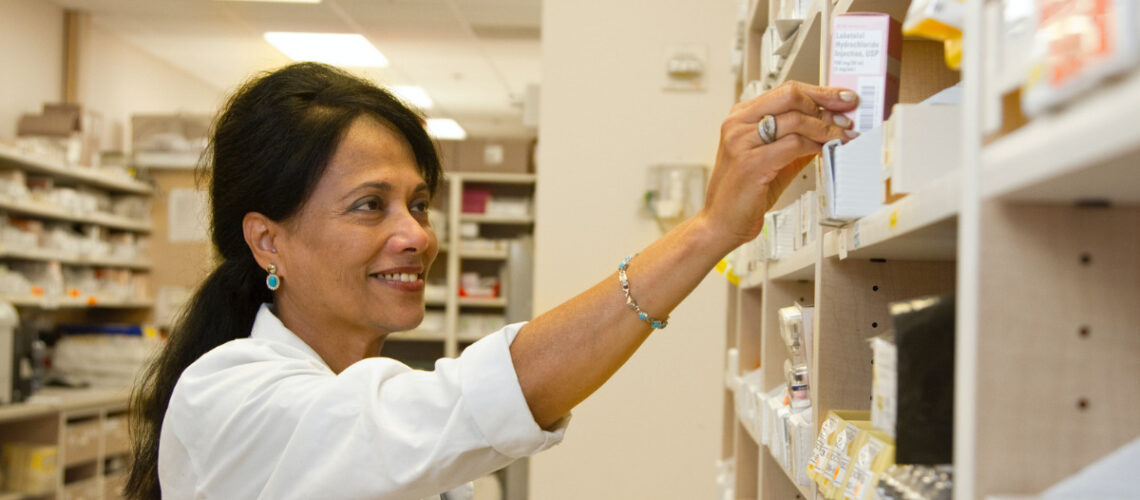In the vast and intricate world of healthcare, there are numerous professionals whose contributions are crucial yet often overlooked. Among them are pharmacists, professionals who do much more than dispense medications. Their role in ensuring patient safety and enhancing care is immense, as they serve as the bridge between the complexities of medication therapies and the practical needs of patients. In this article, we’ll explore the essential role played by pharmacists like Sara Abdulrasoul, a dedicated professional pharmacist from Chicago, in safeguarding patient health. These professionals are at the forefront of a healthcare system that increasingly relies on precision and personalized care. Through their expertise, pharmacists like Abdulrasoul ensure that patients receive the best possible treatment while minimizing potential risks.
Medication Management: The Cornerstone of Pharmacy Practice
At the core of pharmacy practice is medication management, a critical aspect that directly impacts patient safety. Pharmacists are trained to understand the intricate details of medications, including their mechanisms, side effects, interactions, and optimal usage. This knowledge is vital in preventing medication errors, which are among the leading causes of complications in healthcare settings. Sara Abdulrasoul exemplifies this aspect of pharmacy practice. In her work, she goes beyond merely dispensing medication; she meticulously reviews patient histories, understands their current medication regimens, and anticipates potential drug interactions. This attention to detail can be the difference between a successful treatment outcome and an adverse event. Her approach not only safeguards against errors but also promotes a deeper understanding and trust between patients and the healthcare system.
Bridging the Information Gap
One of the less visible yet crucial roles of pharmacists is to serve as a conduit of drug information to both patients and healthcare providers. They translate the complex language of medicine into understandable terms, ensuring that patients are fully informed about their medications. This involves educating patients on the importance of adherence to their medication regimen, the potential side effects, and how to manage them. Pharmacists like Sara Abdulrasoul also play a critical role in advising other healthcare professionals. By providing insights into drug efficacy and safety, they help shape treatment plans, ensuring that they are both effective and safe for the patient. Their role in bridging the information gap extends to coordinating with various healthcare providers, ensuring a holistic approach to patient care that encompasses all aspects of their health journey.
Personalized Medication Plans
In today’s era of personalized medicine, pharmacists have taken a front seat in developing individualized medication plans. Understanding that each patient’s needs are unique, pharmacists assess various factors such as age, lifestyle, and other health conditions to optimize medication therapy. Sara Abdulrasoul‘s work in Chicago highlights this personalized approach. She collaborates with both patients and healthcare teams to tailor medication plans that maximize efficacy while minimizing risks, ensuring that each patient receives the most appropriate treatment. The role of pharmacists like Abdulrasoul is becoming increasingly important as medical treatments become more specialized and targeted, requiring a deep understanding of individual patient profiles and the nuances of their conditions.
Real-life Impact: Stories from the Field
The true impact of pharmacists can be seen in numerous real-life examples. Consider the case of an elderly patient who was struggling with a complex medication regimen. With multiple chronic conditions, the patient was prescribed various medications by different specialists, leading to confusion and non-adherence. It was the intervention of a pharmacist like Sara Abdulrasoul that helped streamline the medication regimen, provided clear instructions, and closely monitored the patient’s progress, leading to improved health outcomes. Another instance involves a young patient with a rare disease. The standard medication was not only ineffective but also caused severe side effects. A pharmacist, with their specialized knowledge, suggested an alternative treatment that proved to be both effective and better tolerated. These stories underscore the critical role pharmacists play in patient care. They highlight how pharmacists, through their expertise and dedication, can transform patient experiences, leading to better health outcomes and a higher quality of life.
Pharmacists are indeed the unsung heroes in healthcare. Their contributions in medication management, patient education, and the development of personalized medication plans are vital for patient safety and care. Professionals like Sara Abdulrasoul are shining examples of the profound impact pharmacists have on the healthcare system. As healthcare continues to evolve, the role of pharmacists will only grow in importance, further highlighting their indispensable role in ensuring the health and well-being of patients. Their expertise and commitment to patient care not only prevent adverse outcomes but also foster a more efficient and effective healthcare system, making them a cornerstone of modern healthcare. Their ongoing dedication and expertise will undoubtedly continue to benefit countless patients in their journey towards better health and wellness.

